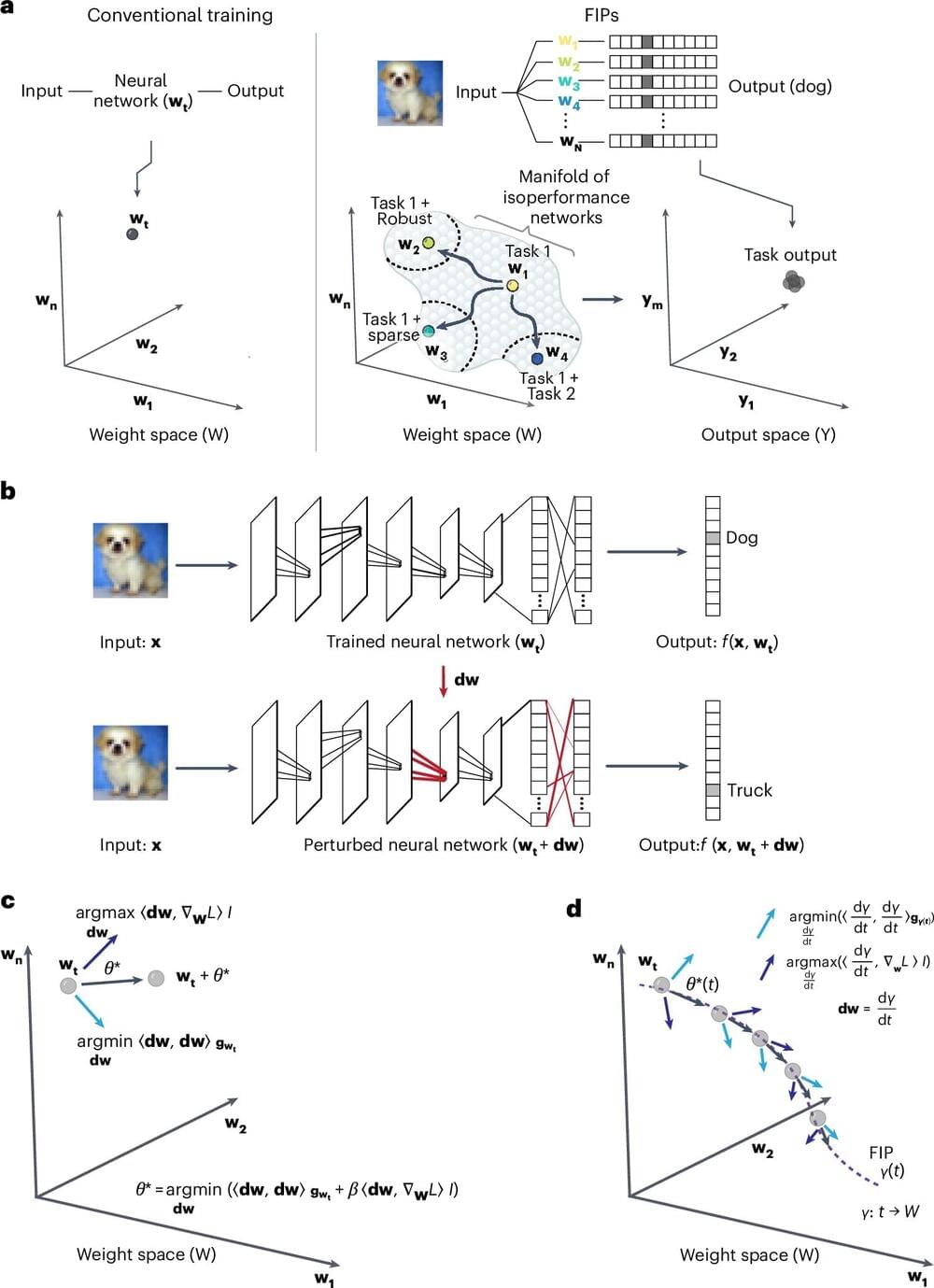Neural networks have a remarkable ability to learn specific tasks, such as identifying handwritten digits. However, these models often experience “catastrophic forgetting” when taught additional tasks: They can successfully learn the new assignments, but “forget” how to complete the original. For many artificial neural networks, like those that guide self-driving cars, learning additional tasks thus requires being fully reprogrammed.
Biological brains, on the other hand, are remarkably flexible. Humans and animals can easily learn how to play a new game, for instance, without having to re-learn how to walk and talk.
Inspired by the flexibility of human and animal brains, Caltech researchers have now developed a new type of algorithm that enables neural networks to be continuously updated with new data that they are able to learn from without having to start from scratch. The algorithm, called a functionally invariant path (FIP) algorithm, has wide-ranging applications from improving recommendations on online stores to fine-tuning self-driving cars.










Leave a reply